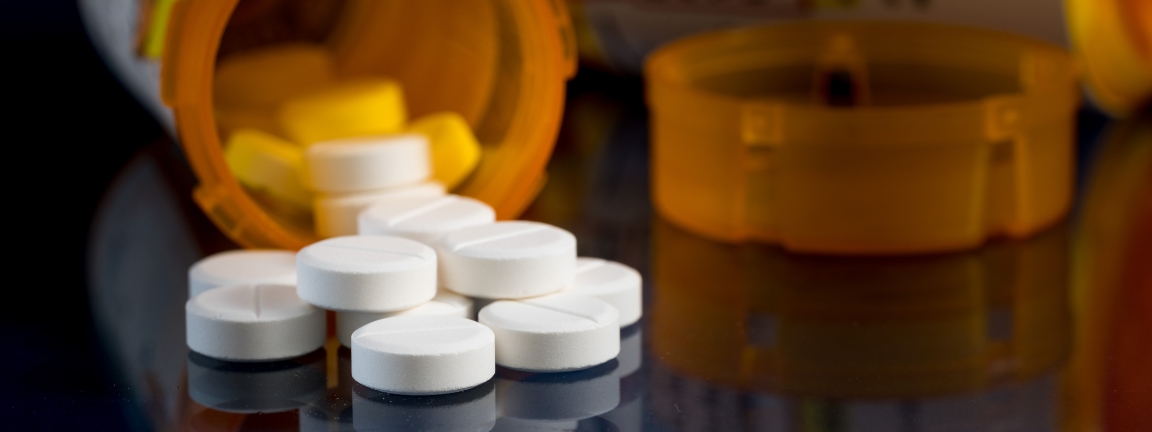In the practice of law you occasionally run across an appellate opinion that jumps right off the pages at you, because when you’re done reading it, you say to yourself, “you know, I was right about that.” Well, this is such a case, and the argument that led to the appellate court agreeing with me had its roots from right here in Bloomington-Normal, Illinois by another Illinois attorney who made the same argument to the trial court that I previously made to a different judge in the same courthouse. My case, however, got dismissed. Mr. Patel, on the other hand, wasn’t so fortunate.

Before I begin my analysis of the Patel case, a little legal backdrop is needed. As some of you may know, beginning July 22, 2011, the 97th Illinois General Assembly began cracking down on synthetic marijuana or “cannabinoids” and any structurally similar compound, such as “K2” or “Spice”. Until the ban, “Spice” was being sold at gas stations and smoke shops throughout the State and around the World. Many people were using the chemically enhanced organic material as a substitute for cannabis to get high, because the chemicals used in the production process were not yet illegal. A lot of health problems, including death, were associated with these types of drugs, and many perceived them to be worse for the user than the real thing.
According to the history as provided by the 4th district, Mr. Patel was of Indian descent and an employee at the BP Amoco gas station in nearby Lexington, Illinois where the owner was selling synthetic marijuana labeled as “Bulldog”. Patel was arrested in February 2012, after a confidential source (an informant) purchased the synthetic marijuana from Patel while he was working the register at the gas station. The “Bulldog” contained the controlled substance AM-2201, a type of synthetic marijuana made illegal by the 2011 amendments to the Controlled Substances Act. An employee of the gas station testified that in addition to the synthetic marijuana labeled “Bulldog”, the owner had also sold synthetic marijuana with the labels “Diesel” and “California Kronic”. A McLean County, Illinois deputy testified that they also found other packaging labeled “Passion Fruit”.
After Mr. Patel’s arrest, the owner of the gas station provided McLean County, Illinois deputies with a report from his supplier, S.A. Wholesale, LLC, stating that its brands “California 10X”, “Bulldog”, “Diesel”, “Pandora”, and “Four Elements”, did not contain certain controlled substances criminalized by the new legislation. The report did not identify the AM-2201 sold by Mr. Patel as being one of the substances not contained in its products. At his trial, Mr. Patel testified that he did not know what “spice” was before he was arrested, and that he was not aware that he was selling anything illegal to anyone. He also testified that he believed his employer when his employer told him that he had a certificate indicating that the product they were selling was legal to sell.
At the conclusion of the evidence in Mr. Patel’s case, the trial court found him guilty stating “it believed defendant knew ‘Bulldog’ contained a controlled substance”, and that the State was not required to show that he knew he was selling a controlled substance in any event, just that he sold it. The appellate court held that the evidence did not support the trial court’s finding beyond a reasonable doubt. It found that, “The evidence in this case only supports the following findings:
- defendant knew he was selling professionally packaged product its manufacturers or distributors called ‘Bulldog;’
- defendant identified the product as ‘spice’;
- defendant knew some people who purchased this product smoked the substance;
- ‘Bulldog’ was not on open display on the day in question;
- ‘Bulldog’ was not sold in the store for a period in January after certain substances used in certain ‘spice’ products were made illegal; and
- defendant questioned the store owner whether ‘Bulldog’ was legal to sell and was told yes and that the owner had a certificate so stating.” Citing the Illinois Supreme Court’s 2001 decision People v. Ortiz as precedence, the 4th District of the Illinois Appellate Court held that the State had failed to prove that Mr. Patel knew that the “Bulldog” he sold contained the controlled substance AM-2201, or any other substance for that matter.
At or near the time Mr. Patel’s case winding its way towards the Illinois Appellate Court, I was retained by a college student who had been arrested for possession of one of these cannabinoids. One of the arguments I raised at the bench in my case was that my client couldn’t possibly be held criminally responsible for possessing a product he purchased over-the-counter from a retail establishment that was professionally packaged in the manner that it was. The analogy I made to the prosecution and the judge was that it would be analogous to The Coca-Cola Company reintroducing cocaine into its beverage formula. Or, it would be similar to any number of wholesale food manufacturers introducing a controlled substance into their product. Or, as the appellate court reasoned, it would be similar to a grocery store clerk selling a bag of cocaine that had been professionally packaged to look like flour, even if the clerk just thought he was selling flour. How on earth would the innocent consumer know any better? When you go to the grocery store, are you supposed chemically test each product you buy? The retort I received was that this is different, because my client “purchased the cannabinoid with the intent to get high.” Yes, this is true, but did he have any way of knowing what he had purchased from the retail establishment over-the-counter contained some newly banned controlled substance that a law enforcement officer doesn’t even know it contains until after he sends it off to the Illinois State Police Crime Lab? And, as the Illinois Appellate Court rightly suggested, people buy legal products to get high with all the time and “[m]ost people buying or selling a manufactured product in a . . . store have no idea what is in the product . . . .” Quite honestly, I challenged the State, asking the prosecutor handling the matter if he wanted to make some bad case law; because, I certainly don’t mind my name associated with a precedent-setting case such as this one.
The point of the matter is Mr. Patel’s attorney was right. I was right. In both these instances, it paid to hire an experienced Illinois Criminal Defense Attorney. In my case and in Mr. Patel’s, each defendant avoided a criminal conviction because they hired an Illinois Criminal Defense Lawyer.
- People v. Patel, 2013 Ill.App. 121111 (Ill. App. Ct. 4th Dist. 2013)
- Likely because the State perceived Mr. Patel as a dealer and not a user
- See Public Act 097-0192, found here: http://www.ilga.gov/legislation/publicacts/fulltext.asp?Name=097-0192&GA=97 ; later amendments to the Illinois Controlled Substances Act widened the breath of the chemical compounds to be included in the ban.
See “What is Synthetic Marijuana and How does it Compare to Traditional Marijuana?”, Andrea Rael, The Huffingtonpost.com, Sept. 11, 2013, http://www.huffingtonpost.com/2013/09/11/synthetic-marijuana_n_3908171.html; See also Illinois Attorney General Lisa Madigan’s public service announcement found here: http://illinoisattorneygeneral.gov/communities/syntheticdrugs.html - Id. at pp. 2-3, 6
- Id. at p. 4
- Id. at p. 5
- Id. at p. 4
- Id.
- Id. at p. 6
- Id. at pp. 7-8
- Id. at pp. 9-10, 16
- Id. at pp. 16-17
- 196 Ill.2d 236, 752 N.E.2d 410 (Ill. 2001)
- Id. at pp. 11-15
- Id. at p. 11
- As Detective Tim Tyler testified in the Patel case, at the time, and maybe even presently, there was not any reliable field test for law enforcement officers to use to determine the presence of any of these synthetic marijuana chemicals
- Id. at p. 15, 17


